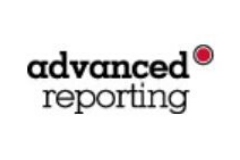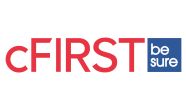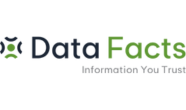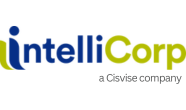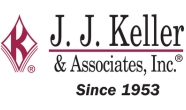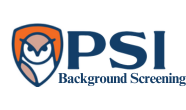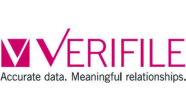Practical Guidance
You must be a current member to access practical guidance documents. If you have questions or to join, contact info@thepbsa.org.
View the Practical Guidance Tool-kit. Didn't find what you are looking for? Submit a request for a resource.
- June 4, 2025
- Comparison of Key Requirements under the FCRA for Employment and Tenant Screening
- Comparison of Key Requirements under the FCRA for Employment and Tenant Screening - this is not an all inclusive listing but highlights some of the main differences members should be aware of.
- May 20, 2025
- Master RFP Document for Member Use
- Collection of RFP suitable questions covering various areas of background screening.
- April 8, 2025
- PBSA Background Screening Basics
- Professional background checks are conducted by a consumer reporting agency that gathers data from multiple sources. Background checks are completed for many reasons including compliance with housing, licensing, and employment laws and regulations. Additionally, employers and property managers use background checks to make informed placement decisions, retain the most qualified candidates, and mitigate overall risk.
- April 8, 2025
- PBSA Highly Regulated Industry
- At every stage in the process, consumer reporting agencies must follow strict regulations under the Fair Credit Reporting Act (FCRA), the primary federal regulation of consumer reports. The FCRA provides expansive regulatory and enforcement authority to the Consumer Financial Protection Bureau and the Federal Trade Commission and ensures that professional background screeners are at every stage empowering consumers, promoting accuracy and ensuring accountability.
- December 11, 2024
- European Data Protection Board (EDPB) Guidelines - Dec 24
- Summary of EDPB guidelines.
- September 5, 2024
- Thailand, Malaysia and Indonesia Data Privacy Updates - Sep 24
- Summary of recent changes to data privacy laws in the ASEAN jurisdictions of Thailand, Malaysia and Indonesia
- July 16, 2024
- International Advocacy Toolkit
- Includes basic rules, helpful suggestions, and observations to guide you in your interactions with various contacts, be they regulators, elected officials or other stakeholders who may impact our industry.
- July 2, 2024
- Practical Guidance for CRAs Verifying Federal Records through PACER
- Practical Guidance for CRAs Verifying Federal Records through PACER Reviewed February 2024
- June 26, 2024
- Addressing a Verification Trend: Fraudulent Employers
- This document addresses a concerning trend that is actually arising globally. Since the pandemic, individuals are going to extreme lengths to provide false employment verifications. This document outlines some of the red flags to watch for, as well as actionable tactics that our industry can take to verify if an employer is legitimate.
- May 3, 2024
- HUD Fair Housing Act Tenant Screening Guidance - Summary
- Below is a summary of the guidance released on Thursday, May 2nd by HUD regarding tenant screening under the Fair Housing Act. The released guidance is lengthy and not subject to notice and comment. If you are in the tenant screening space, please be sure to review the guidance and the below summary. As always, consult with legal counsel to discuss impact to your business and your clients. This summary was prepared by Jay Harris, Hudson Cook.
- April 1, 2014
- PBSA Fingerprint Paper
- Why background checks performed by professional background screeners best serve the interests of employers, consumers and the public
- April 12, 2024
- Comparison of Background Screening Industry and Police Service Criminal Record Checks (Canada)
- A Comparison of the Background Screening Industry and Police Service Criminal Record Checks (Canada)
- April 12, 2024
- Criminal Record Checks - Comparing Third Party (Screening Industry) Checks to those from Canadian Police Services
- Third-party background screening vendors provide millions of criminal checks to organizations across Canada every year, collecting and completing more checks annually than all police services combined.
- January 31, 2024
- Practical Guidance for Consumer Reporting Agencies Regarding Section 613 of the FCRA
- Practical Guidance for Consumer Reporting Agencies Regarding Section 613 of the FCRA
- January 3, 2024
- Practical Guidance - Updating a Consumer Report
- Practical Guidance - Updating a Consumer Report US Industry Practices Committee
- November 15, 2023
- Canada Cheat sheet for Data Privacy Laws
- PBSA Canada Council has created an easy reference guide for some of the privacy regulations that are most relevant to Canada
- September 19, 2023
- PBSA Canada: Practical Guidance for Quebec?s Private Sector Privacy Reform
- PBSA Canada: Practical Guidance for Quebec?s Private Sector Privacy Reform
- September 14, 2023
- Canada's Guide on the use of Generative AI
- Canada's Guide on the use of Generative AI
- June 16, 2023
- Select the correct criminal check, a USA-Canada comparison
- Select the correct criminal check, a USA-Canada comparison
- May 16, 2023
- 10 Privacy Tips for Businesses - Canada
- 10 Privacy Tips for Businesses - Canada
- May 16, 2023
- 10 Tips for a Better Online Privacy Policy and Improved Privacy Practice Transparency - Canada
- Every organization subject to the Personal Information Protection and Electronic Documents Act (PIPEDA) is required to make information available to individuals about its personal information management policies and practices. A good privacy policy is one of the important ways in which an organization can meet this obligation, foster public trust and strengthen customer loyalty.
- May 16, 2023
- Accreditation of private fingerprinting companies
- Accreditation of private fingerprinting companies
- May 16, 2023
- British Columbia Criminal Records Review Program
- Criminal Record Check BC
- May 16, 2023
- Canada - Criminal Records Regulations
- Criminal Records Regulations
- May 16, 2023
- Canada - RCMP - Criminal Records
- The RCMP's Canadian Criminal Real Time Identification Services (CCRTIS) maintains the national database of criminal records in Canada. Local police and other authorities across Canada contact CCRTIS to check the fingerprint records of people who have been charged or convicted of a crime. The database is also used for civil (non-criminal) purposes, specifically to confirm a person's identity in criminal record checks.
- May 16, 2023
- Checking References: Guidelines for Public Bodies - B.C.
- Checking References: Guidelines for Public Bodies
- May 16, 2023
- Conducting Social Media Background Checks - B.C.
- Conducting Social Media Background Checks | oipc.bc.ca
- May 16, 2023
- Criminal record checks
- A criminal record check will determine if you have been charged or convicted of a crime. If a name-based criminal record check does not provide a definite way of confirming your identity, you may be asked to provide fingerprints. The use of fingerprints is the most accurate way to confirm a person's identity. They ensure that individuals cannot evade their criminal past, and protect individuals from being falsely associated with a criminal record that is not theirs.
- May 16, 2023
- Criminal Records Act
- Criminal Records Act
- May 16, 2023
- Criminal Records Act (R.S.C., 1985, c. C-47)
- Criminal Records Act
- May 16, 2023
- Dissemination of Criminal Record Information policy
- Dissemination of Criminal Record Information policy
- May 16, 2023
- Guidance Documents: Private Sector Landlord and Tenants - B.C.
- PRIVATE SECTOR LANDLORD AND TENANTS
- May 16, 2023
- Guidance on Inappropriate Data Practices: Interpretation and Application of Subsection 5(3)
- Guidance on Inappropriate Data Practices: Interpretation and Application of Subsection 5(3)
- May 16, 2023
- Guide to BC's PIPA for Business and Organizations | oipc.bc.ca
- Guide to BC's PIPA for Business and Organizations | oipc.bc.ca
- May 16, 2023
- Guideline E-17 - Background Checks on Directors and Senior Management of (osfi-bsif.gc.ca)
- Background Checks on Directors and Senior Management of FREs
- May 16, 2023
- Guidelines for Obtaining Meaningful Consent
- Guidelines for Obtaining Meaningful Consent
- May 16, 2023
- Health Cards & Health Numbers
- The Personal Health Information Protection Act
- May 16, 2023
- Identification of Criminals Act (R.S.C., 1985, c. I-1)
- Identification of Criminals Act
- May 16, 2023
- Investigation and Audit Reports ? Office of the Information and Privacy Commissioner for BC (oipc.bc.ca)
- Investigation and Audit Reports ? Office of the Information and Privacy Commissioner for BC (oipc.bc.ca)
- May 16, 2023
- INVESTIGATION REPORT F12-03
- USE OF EMPLOYMENT-RELATED CRIMINAL RECORD CHECKS: GOVERNMENT OF BRITISH COLUMBIA
- May 16, 2023
- INVESTIGATION REPORT F14-01
- USE OF POLICE INFORMATION CHECKS IN BRITISH COLUMBIA
- May 16, 2023
- Managing your criminal record
- Managing your adult criminal record
- May 16, 2023
- Obtain Meaningful Consent - Canada
- Organizations must generally obtain meaningful consent for the collection, use and disclosure of personal information.
- May 16, 2023
- OPC - Privacy Guide for Business
- What Canadian businesses need to know to comply with federal privacy law
- May 16, 2023
- Personal Information Protection Act | Alberta.ca
- Personal Information Protection Act | Alberta.ca
- May 16, 2023
- Personal Information Protection Act | gov.bc.ca
- Personal Information Protection Act | gov.bc.ca
- May 16, 2023
- Personal Information Protection and Electronic Documents Act (justice.gc.ca)
- Personal Information Protection and Electronic Documents Act (justice.gc.ca)
- May 16, 2023
- Private fingerprinting companies accredited by the RCMP
- Private fingerprinting companies accredited by the RCMP
- May 16, 2023
- RCMP - Canada Criminal Record Checks Fact Sheet
- Canada Criminal Record Checks Fact Sheet
- May 16, 2023
- RCMP - Framework for VS Checks
- The RCMP?s policies and practices for VS checks
- May 16, 2023
- RCMP - Types of Criminal Background Checks
- Name-based criminal record checks and Certified criminal record checks in Canada, with definitions
- May 16, 2023
- RCMP ask employers to know when and when NOT to ask for a Vulnerable Sector Check
- Record checks for employees has become an increasingly popular requirement and RCMP are asking that employers review their policies to ensure that Vulnerable Sector (VS) checks are only required when necessary. Unfortunately, many managers and employers ...
- May 16, 2023
- Requesting protected motor vehicle data | Alberta.ca
- You can search for motor vehicle information under specific circumstances.
- May 16, 2023
- Services canadiens d?identification criminelle en temps réel
- Services canadiens d?identification criminelle en temps réel
- May 16, 2023
- Steps for getting a certified criminal record check
- From outside Canada To submit fingerprints to the RCMP's Canadian Criminal Real Time Identification Services (CCRTIS) from outside of Canada:...
- May 16, 2023
- Steps for getting a certified criminal record check
- From outside Canada To submit fingerprints to the RCMP's Canadian Criminal Real Time Identification Services (CCRTIS) from outside of Canada:...
- May 16, 2023
- The PBC refuses to process requests for record suspension information
- Complaint under the Privacy Act (the Act)
- May 16, 2023
- The Screening Handbook 2012 Edition
- The Screening Handbook 2012 Edition
- May 16, 2023
- Types of criminal background checks
- Types of criminal background checks
- May 16, 2023
- Youth Criminal Justice Act (S.C. 2002, c. 1)
- Youth Criminal Justice Act
- March 31, 2023
- Why am I being charged UK VAT?
- Why am I being charged UK VAT?
- March 23, 2023
- Practical Guidance Regarding Adjudication Services
- Adjudication is a service that some consumer reporting agencies (CRAs) offer as an administrative service to their clients. Adjudication services are not a substitute or replacement for an end user?s review of their applicants? consumer reports, nor are adjudication services a substitute or replacement for the individualized assessments performed by end users. Rather, adjudication may help end users by organizing or categorizing information that the end user has identified as potentially relevant in their screening process.
- January 31, 2023
- Developing Reasonable Procedures to Assure Maximum Possible Accuracy
- Section 607 [15 U.S.C. 1681e(b)] of the Fair Credit Reporting Act (FCRA) prescribes specific compliance procedures of Consumer Reporting Agencies (CRAs) and end-users of consumer reports. Subsection (b), Accuracy of Reports, is one of the key provisions of Section 607, outlining a CRA's obligation to "follow reasonable procedures to assure maximum possible accuracy of the information" of consumers about whom it prepares reports. This accuracy requirement applies to all consumer reports and all consumer reporting information in those reports, not just public record information. In addition to the legal requirement to comply with Section 607, which is intended to protect consumers, customers of CRAs also expect accurate information which they in turn use in determining eligibility for matters such as employment, housing, or volunteer positions. This document is intended to set forth recommended strategies for CRAs preparing consumer reports for delivery to end users.
- January 31, 2023
- Practical Guidance Regarding Disputed Accuracy
- Consumer Reporting Agencies (CRAs) are required to adhere to specific dispute procedures prescribed by Section 611 [15 U.S.C. 1681i] of the Fair Credit Reporting Act (FCRA) whenever a consumer disputes the completeness or accuracy of any item of information contained within their file. CRAs must conduct a reasonable reinvestigation to determine whether the disputed information is incomplete or inaccurate. The reinvestigation must determine the correct and current status of the disputed information and if inaccurate or unverifiable, it must be deleted from the file. This document is intended to set forth recommended strategies for receiving, reinvestigating, and resolving disputed information.
- April 15, 2023
- Global Industry Terms
- This document describes the common terms, abbreviations, and acronyms used in the background screening industry.
- January 30, 2023
- Guidance on Hiring and Screening Ukrainian Nationals
- More than 4.3 million civilians from Ukraine have fled the borders of their homeland. PBSA and the Europe Council's Educational Resources Committee has gathered this information to assist you and your client's efforts to support the employment of Ukrainian nationals within different jurisdictions.
- January 30, 2023
- PBSA Global Vocabulary
- This document describes the common terms, abbreviations, and acronyms used in the background screening industry.
- November 8, 2022
- General European Vendor Assessment Guidelines
- What is vendor vetting? In a nutshell, vendor vetting answers the question, ?Should we be doing business with this organization or not?? This document provides practical guidance for vendor assessment practices to background screening companies, to and from all PBSA members within Europe. It is intentionally broadly written with the understanding that practices and regulations may vary by country and regions. Following these practices, when possible, may instill confidence and better understanding in the vendor vetting process, and offer consistency and overall improved processes.
- July 1, 2022
- CRTB 5 Point Plan
- The Criminal Records Trade Body (CRTB) is a committee within the Europe Council of the Professional Background Screening Association (PBSA). It is comprised of a group of UK-based criminal record check professionals and was founded in conjunction with the Disclosure and Barring Service (DBS) in 2018.
- July 1, 2022
- PBSA Criminal Record Information Identifier Matching Leave Behind
- Access to public record information serves the public need and the public good. Public records are used to make important decisions and can have far reaching impact on others. Therefore, it is imperative that any information obtained can be positively and confidently attributed to a specific individual. If Shared Identifiers are unnecessarily redacted, incomplete, and inaccurate background checks are inevitable and will result in great harm.
- June 7, 2022
- Reporting Elements for U.S. County Criminal Court Records
- Consumer Reporting Agencies (CRAs) reporting criminal record information in a consumer report should consider including these reporting elements (if applicable) and readily available from a U.S. County Criminal Court.
- April 25, 2022
- Accreditation FAQs
- Frequently Asked Questions about the BSOAP Accreditation Program. Includes questions about the new General Accreditation Program as well as the U.S. Accreditation Program.
- October 14, 2021
- 2021 PBSA and HR.com Industry Survey Report: Background Screening Trends in the U.S. and Abroad
- The 5th PBSA and HR.com Industry Survey: Background Screening Trends in the U.S. and Abroad
- October 14, 2021
- INFOGRAPHIC: 2021 PBSA Industry Survey Background Screening Trends
- Infographic for the 2021 PBSA and HR.com Industry Survey: Background Screening Trends in the U.S. and Abroad
- July 16, 2021
- PBSA Canada: Policy Considerations for Background Screening Service Selection
- The PBSA Canada Council has created a resource for members and their end users in Canada to refer to when creating or updating their screening programs. The document highlights considerations when building a background screening policy, determining which searches to include in a screening program and considerations when evaluating results, specifically adverse information.
- November 3, 2020
- OPC - Privacy Guide for Business
- Canada Council Resource - OPC - Privacy Guide for Business
- September 10, 2020
- 10 Privacy Tips for Businesses - Canada
- 10 Privacy Tips for Businesses specific to Canada.
- September 10, 2020
- 10 Tips for a Better Online Privacy Policy and Improved Privacy Practice Transparency - Canada
- 10 Tips for a Better Online Privacy Policy and Improved Privacy Practice Transparency - Canada
- September 10, 2020
- Obtain Meaningful Consent - Canada
- Obtain Meaningful Consent - Canada
- September 10, 2020
- Screening and the Canadian Human Rights Commission
- Screening and the Canadian Human Rights Commission
- July 15, 2020
- Infographic: Background Screening Trends and Uses in Today?s Global Economy
- Infographic demonstrating the results of the 2020 PBSA and HR.com industry survey of human resources (HR) professionals worldwide.
- July 15, 2020
- PBSA?s 4th Industry Survey: Background Screening Trends and Uses in Today?s Global Economy
- PBSA commissioned HR.com to conduct the 4th annual survey of human resources (HR) professionals to gauge their views on background screening. This 2020 report reveals emerging trends in who is being screened and how often, what elements go into a background check and the increasing value of international screening capabilities.
- March 18, 2019
- Infographic: Background Screening Basics
- Professional background screening basics
- April 5, 2018
- Infographic: Background Screening Process
- Professional background screening process
- April 5, 2018
- Factsheet on Background Screening
- Facts about background screening. What is a background check? What are the differences between various kinds of background checks? What databases are used? Is there government oversight?
- May 12, 2020
- PBSA France Background Screening Market Situation Podcast
- Podcast Recorded 23/3/2020 Alice Quinones, Europe Council Leadership
- March 23, 2020
- Practical Guidance Tool-Kit
- Resource Tool-Kit providing guidance for Practical Guidance documents. Includes the following documents: Process for Submission and Approval of Practical Guidance; Education Resource vs. Practical Guidance; Practical Guidance Document Submission Workflow; Issue Paper Guidelines; Issue Paper Template; PBSA Formatting Guidelines
- July 26, 2017
- Insurance Policy Considerations for Screening Companies
- Consumer Reporting Agencies (CRAs) generally rely on Errors & Omissions or Professional Liability Insurance to provide protection in the event of a background screening lawsuit. However, too often CRAs do not realize until it's too late that their insurance policy does not provide meaningful coverage. CRAs are well advised to make sure that they understand the details of their prospective or actual policy to ensure that they are not surprised later.
- June 13, 2019
- Practical Guidance for Credentialing Clients
- This document is intended to set forth strategies for CRAs in credentialing their clients. Section 607 of the Fair Credit Reporting Act (FCRA) imposes several compliance obligations on consumer reporting agencies (CRAs). The first of these obligations involves client credentialing, often referred to as client vetting. Under 607(a), prior to furnishing a consumer report, CRAs must maintain reasonable procedures that at minimum require the CRA to obtain from the prospective user: (1) the prospective user?s identity; (2) certification for the permissible purpose that forms the basis for the user?s request for consumer reports; and (3) certification that the information will be used for no purpose other than the permissible purpose provided. Following the above, every CRA must make a ?reasonable effort? to verify the identity of the user and the uses certified by the prospective user prior to providing a consumer report to such user.
- January 23, 2020
- Use of the Driver's Licence Number in Background Checking (Canada)
- Practical Guidance for Use of the Driver's Licence Number in Background Checking in Canada.
- June 18, 2019
- NAPBS? 3rd Industry Survey: How Human Resource Professionals View and Use Background Screening in Employment
- The National Association of Professional Background Screeners (NAPBS) commissioned HR.com to conduct a national survey of 2,301 human resources professionals to gauge their views on background screening.
- February 24, 2019
- Use of the Social Insurance Number in the Employment Screening Industry (Canada)
- Practical guidance for using Social Insurance Number in Canada
- June 27, 2018
- National Survey: How Human Resource Professionals View the Use and Effectiveness of Background Screening Methods
- The National Association of Professional Background Screeners (NAPBS) commissioned HR.com to conduct an unprecedented national industry survey of 2,137 human resources professionals to gauge their views on background screening.
- May 30, 2018
- Guidance on Inappropriate Data Practices: Interpretation and Application of Subsection 5(3)
- The Guidance on inappropriate data practices: Interpretation and application of subsection 5(3) outlines prohibited data practices, according to PIPEDA and comes into effect July 1, 2018.
- May 30, 2018
- Guidelines for Obtaining Meaningful Consent
- The Guidelines for Obtaining Meaningful Consent are issued in concert with the Information and Privacy Commissioners in Alberta and British Columbia, who have legislation deemed substantially similar to PIPEDA and will be effective January 1, 2019. This delayed implementation is to ensure organizations have time to amend their practices, as necessary. The guidelines cover the principles for obtaining meaningful consent, which is a key requirement of privacy legislation in Canada and also includes a checklist of Must Do (legal obligations) and Should Do practices (best practices). The checklist can be found at https://www.priv.gc.ca/en/privacy-topics/collecting-personal-information/consent/gl_omc_201805/#_checklist.
- April 5, 2018
- Infographic: Identifiers & Data Security
- Summary of the use of identifiers in background screening and assurance of data security.
- January 12, 2018
- A Global Guide to Background Checks
- Background checks have become a critical part of the recruitment process in many countries. Employers with a global presence often seek to harmonize recruitment policies across different jurisdictions but addressing the various restrictions and regulations around background checks can be challenging. A Global Guide to Background Checks provides an overview of both the legal and practical issues relating to background checks in 50 key countries. Mayer Brown's largest guide to date, it covers a wide range of background checks, from criminal record checks through to drug and alcohol testing, and identifies the applicable conditions, restrictions and sanctions in each country. It also incorporates new ?at-a-glance? traffic lights for each region, highlighting whether background checks are standard practice, unusual or prohibited in a particular jurisdiction. A Global Guide to Background Checks has been made possible with the input from lawyers across Mayer Brown?s global office network and partner law firms in other jurisdictions. This resource is provided by NAPBS for general educational and informational purposes only and is not legal advice, expressed or implied. If you need legal advice, consult with a qualified licensed attorney.
- November 8, 2017
- GDPR Guidance
- GDPR guidance created for NAPBS members
- September 13, 2017
- Talking Points for Access & Accuracy
- Talking points for NAPBS members on access and accuracy
- July 18, 2017
- National Survey: Employers Universally Using Background Checks to Protect Employees, Customers and the Public
- The National Association of Professional Background Screeners (NAPBS) commissioned HR.com to conduct the national industry survey of 1,528 human resources (HR) professionals. The respondents collectively had operations in all 50 states. The survey gauged how companies approach background screening in order to identify today?s trends and practices.
- May 1, 2017
- Guidance on the application process for criminal records checks overseas
- This guidance explains the application process for obtaining overseas criminality information to provide to employers in the United Kingdom. It includes information on meeting the requirements of the United Kingdom Immigration Rules to provide an overseas criminal record certificate in support of a visa application.
- December 29, 2015
- Regulation (EU) No XXX/2016 of the European Parliament and of the Council
- Regulation (EU) No XXX/2016 of the European Parliament and of the Council
- November 30, 2015
- Health Cards & Health Numbers
- The Personal Health Information Protection Act
- September 25, 2015
- Canada Chapter Useful Links and Resources
- Canada Chapter links
- April 22, 2024
- Generally Accepted Criminal Record Reporting Practices: Matching Identifiers
- The purpose of this document (revised in 2024) is to present those practices which are generally accepted and used when matching criminal records to specific individuals. The Generally Accepted Criminal Record Reporting (GACRR) Practices provided in this document were developed by the PBSA Criminal Records Reporting Practices Sub-Committee. These GACRR Practices were compiled in part based on a 2012 survey of all PBSA members in good standing and were supplemented by additional interviews with member companies.
- April 4, 2013
- Background on FBI Database
- In reality, there currently is no such thing as a single national database that contains all criminal records in the United States. There are actually many different databases used to conduct background checks on individuals.
- April 1, 2013
- Myths and Myth Busters about Background Screening and Fingerprinting
- Myths and Myth Busters about Background Screening and Fingerprinting
- August 8, 2006
- Reinvestigation Requirements of US Background Screeners Under the FCRA
- The Fair Credit Reporting Act (FCRA) details the obligations of background screening agencies in cases involving consumer disputes of the completeness or accuracy of any item of information contained in the consumer's file. Requirements vary somewhat, depending upon whether the screening agency, with respect to the dispute in question, functioned as a Consumer Reporting Agency (CRA), conducting hands-on research of county criminal records, for example, or as a Reseller of information provided by a CRA (e.g., a credit bureau). The following table summarizes re-investigation requirements of CRAs and Resellers under various scenarios labeled A, B, C and D.
ALL MATERIALS ARE COPYRIGHT OF PBSA AND MAY NOT BE USED FOR ANY PURPOSE OTHER THAN MEMBER EDUCATION WITHOUT PERMISSION FROM THE PBSA. IN ADDITION, THE MATERIALS, MAY NOT BE COPIED OR DISTRIBUTED, IN WHOLE OR IN PART, WITHOUT PRIOR WRITTEN PERMISSION.
Disclaimer: PBSA materials are often provided by industry subject matter experts. The information and opinions expressed are for educational purposes only and are based on current practice, industry related knowledge and business expertise.













